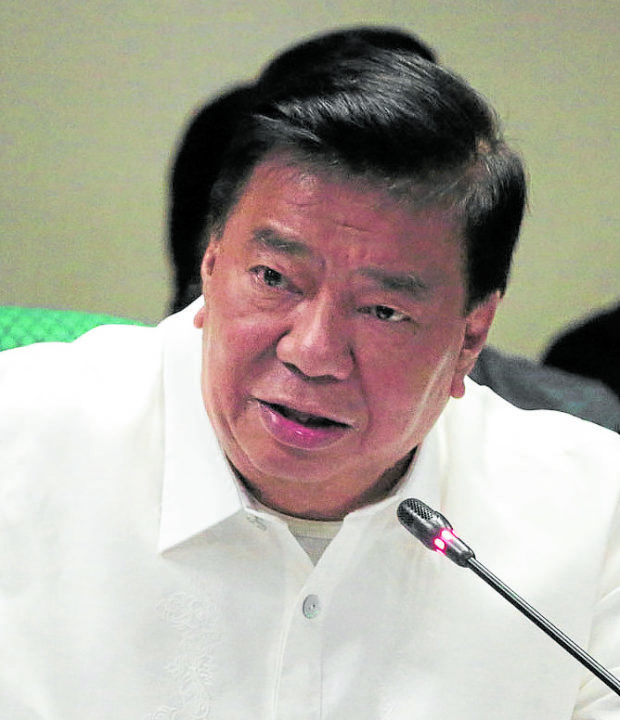MANILA, Philippines — Senate Minority Leader Franklin Drilon on Tuesday warned that the proposal of military chief of staff Lt. Gen. Gilbert Gapay to use the new anti-terrorism law to regulate social media was illegal and unconstitutional and tramples on free speech.
Drilon, who had voted in favor of the law, said nothing in its provisions allows its use for social media regulation.
Presidential spokesperson Harry Roque agreed that the recently signed law does not include provisions governing the use of social media in combating terrorism threats.
“That’s the opinion of [Lt.] Gen. [Gilbert] Gapay. I read the antiterror law. There is no provision there that can be used against social media,” Roque told a press briefing.
Gapay, the newly installed Armed Forces of the Philippines chief of staff, had proposed that the implementing rules and regulations (IRR) of the Anti-Terrorism Act include provisions that would allow authorities to regulate social media, which he said terrorists were using to recruit members.
“That will go beyond the real intent of the law and, therefore, it is illegal and unconstitutional. Freedom of speech is a sacred and inviolable right of every human being. The Constitution guarantees freedom of speech,” Drilon stressed.
The IRR could not contradict the law, he said.
This statement was echoed by Muntinlupa Rep. Ruffy Biazon, who withdrew as principal author of the bill.
“There is no provision in the law which provides for the authority to regulate social media, precisely because it is not the intention of the legislators to cross the line of protecting freedom of expression and right to privacy,” Biazon said in a statement on Tuesday.
Drilon also said any act of government that could stifle free expression could be struck down by the courts for being unconstitutional.
If Gapay would insist on using the law on social media posts, this would confirm fears that it could be used to go after government critics, Drilon warned.
Bayan Muna Rep. Ferdinand Gaite warned that Gapay’s apparent desire to target online activism by regulating social media content could end up in a “martial law in cyberspace.”
Foreign Secretary Teodoro Locsin Jr., for his part, warned against regulating social media because this was a “constitutional crime.”
Locsin said security forces should go after terrorist acts but “never content control.”
